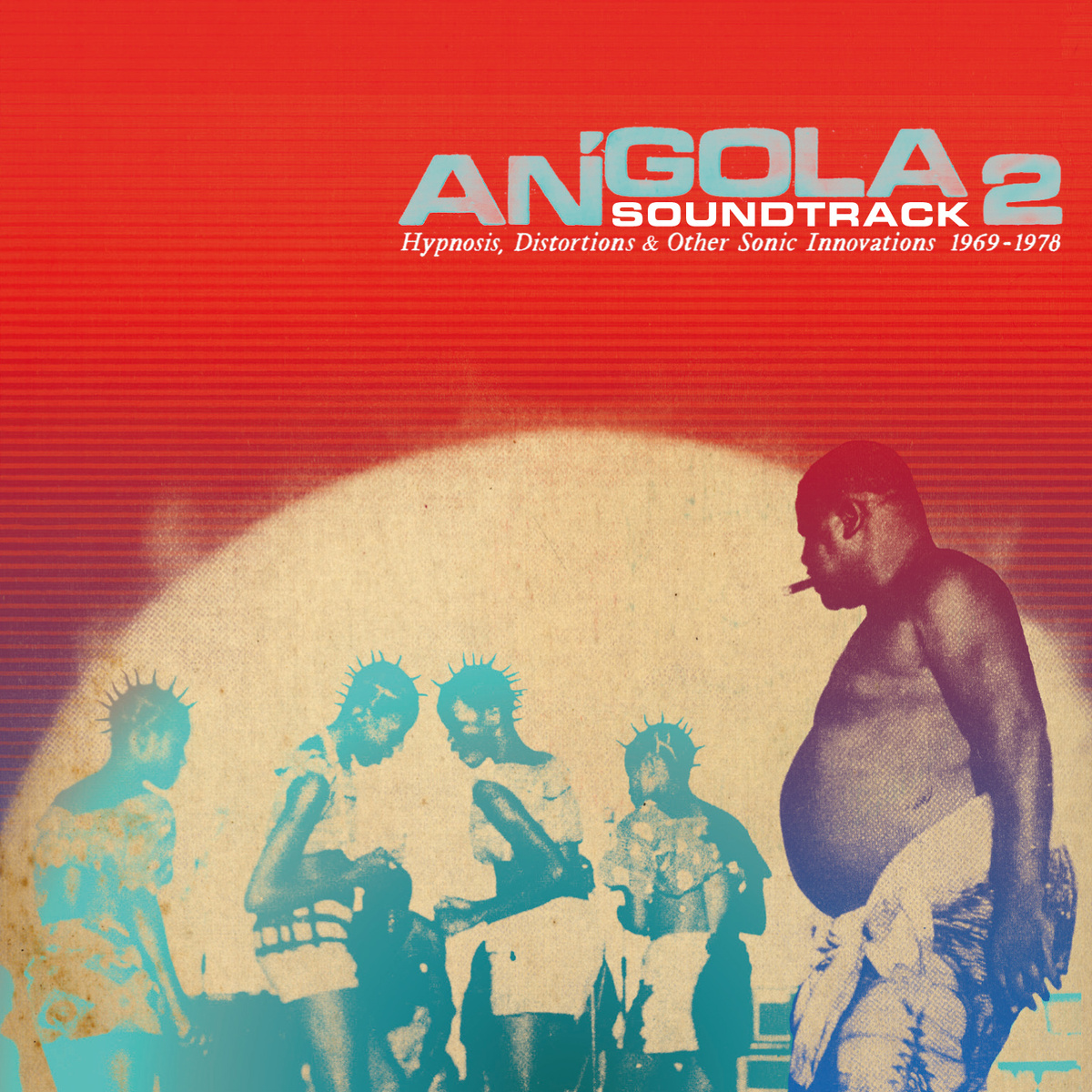1961 was the year the Portuguese colonial government officially banned carnival in the musseques (African ghettos) of Angola, an act of cultural repression that (as so often is true) had the opposite effect. Instead of remaining silent, the people of Luanda created a new style of music from the ashes. A new generation of musicians and singers, some just learning their craft, began to grab national attention, becoming the burgeoning nation's first stars. Bolstered by the power of the electric guitar, they performed live on the stages of what quickly became a national touring circuit, and their records played in discos thanks to the advent of recording technology. This is their music.
Angola Soundtrack 2 is the latest release from Samy Ben Redjeb and his Berlin-based Analog Africa record label. The compilation features 21 bands taken from the "Golden Era" of Angolan music and its burgeoning record industry, from 1969 to 1978. This period was also a time of intense flux in Angolan society--in reaction to the violent guerrilla uprising that stretched from 1969-75, the colonizing Portuguese undertook a program of cultural and economic support designed to win over their restive subjects, an effort that laid the foundation for the development of much of the music on this compilation.
In addition to great music, the release features a highly informative booklet, complete with copious pictures, liner notes and interviews with surviving musicians. This was a fruitful time for Angolan music. The amount of talented and innovative musicians working together was staggering, and a newly created infrastructure was in place to promote it. Suddenly there were venues and clubs to play in, a government-backed tour circuit to travel on, and a record industry to document everything. The scene was helped along largely thanks to the efforts of one man, Luis Montes. A Portuguese citizen and amateur music buff, Montes offered a highly publicized platform for local bands (turmas) to perform, touring the best each weekend in regional showcases known as kutonocas. Playing well at these events meant instant recognition and respectability. The atmosphere was electric.
The music here combines elements drawn from across African and Caribbean pop, while remaining firmly rooted in Angolan tradition. You can hear the distinctive guitar styles of the neighboring Congo and the Dominican Republican's trademark merengue mixed with the scraping sound of the dikanza (traditional percussion instrument). In addition to these aesthetic developments, this multicultural pop was also a way of offering resistance to the Portuguese colonial presence. Artists were frequently political, creating songs that decried the brutal regime. The track “Divua Diami” by Cisco (Francisco Agostinho) is overtly so, with the lyrics “...they raised my son and myself to be killed/I do not know what is the crime/and why they want us killed.” Songs were sung in Portuguese and in the indigenous Kimbundu, an act of resistance in itself. Guitarist Mario "Marito" Arcanjo of the highly influential Os Kiezos remembers: “With the fight for independence, we started to become political and composed songs with anti-colonial subtext. Ironically, the Portuguese enjoyed our music and danced at our concerts, but they didn't know that we were speaking ill of them.”
This did not last, and these groups were frequently harassed and jailed by the Portuguese. That said, not every song featured here is political. The titles run a range of topics; many are love songs, and some are instrumentals. “Bina” by Jovens do Prenda put the virtuoso guitar playing of Ze Keno in the forefront, soaring atop a rich tapestry of syncopated lines and anchored by the churning of the dikanza. Congolese rumba master Franco's influence is certainly felt here. Musicians collaborated constantly, backing singers and creating new groups freely. Often, groups would create songs at the studio. “Senhor Doutor” by Quim Manuel is an example of this. Frenetic, upbeat and driving, it is hard to guess that it was not rehearsed for weeks on end. However guitarist Teddy “T-Mex” Nsingui states “...we had never heard the songs before that day. We created, arranged and recorded the songs on the spot.”
The Angola Soundtrack 2 presents a rich cultural heritage that is deserving of a new generation of fans. Tragically, the human toll of the fight for independence from Portugal and the ensuing civil war was enormous. Many, many Angolans lost their lives, including some of the musicians featured on the album. For an closer look at Angola's musical heritage, feel free to check out our four-part Hip Deep series.








